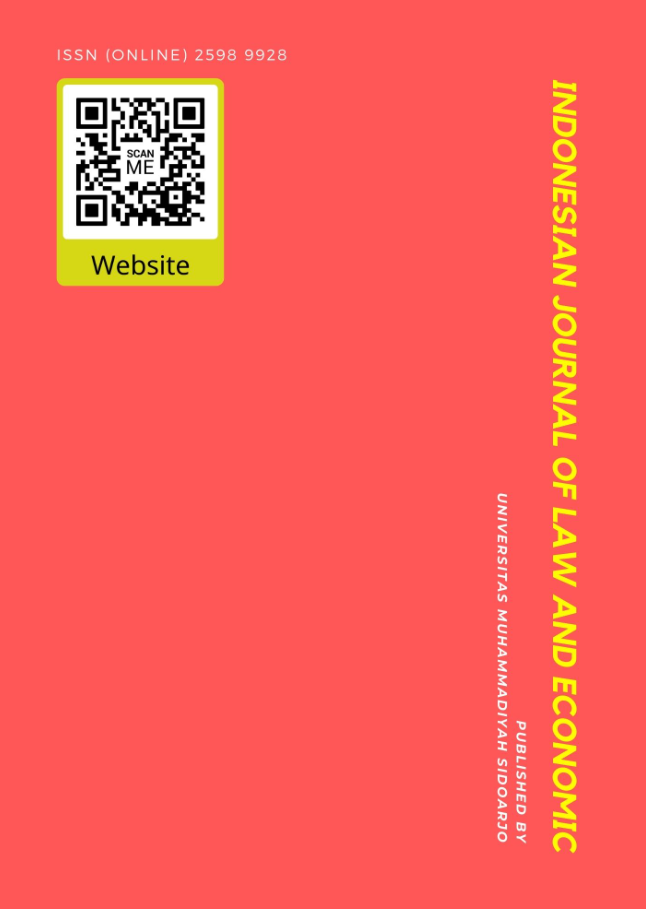- MSMEs,
- Perception,
- Accounting,
- Improvement,
- Financial Management
Copyright (c) 2024 Sarwendah Biduri, Mochammad Fani Rafael

This work is licensed under a Creative Commons Attribution 4.0 International License.
Abstract
This study investigates the perceptions of Micro, Small, and Medium Enterprises (MSMEs) regarding accounting practices, focusing on Citra Pertiwi Farm and SUGOfreshmilk. Using a qualitative approach with interviews, observations, and documentation, the research identifies positive perceptions of accounting's benefits while noting shortcomings in inventory recording and accounts payable management. The study concludes that the current accounting practices in these MSMEs do not fully align with accounting standards for MSMEs. The findings suggest a need for improved accounting systems in MSMEs to enhance financial management and sustainability.
Highlight:
- MSMEs' perceptions of accounting practices.
- Benefits and shortcomings in MSMEs' accounting.
- Emphasizes need for improved accounting systems.
Keyword: MSMEs, Perception, Accounting, Improvement, Financial Management
Downloads
Metrics
References
- A. O. Siagian and N. Indra, “Pengetahuan Akuntansi Pelaku Usaha Mikro Kecil (UMKM) dan Menengah terhadap Laporan Keuangan,” Jurnal Ilmiah Indonesia, pp. 17-35, 2019.
- D. P. Hapsari, A. Dharmawan, and A. N. Hasanah, “Model Pembukuan Sederhana bagi Usaha Mikro di Kecamatan Kramatwatu Kabupaten Serang,” Jurnal Akuntansi, pp. 36-47, 2017.
- M. R. R., “Analisis Sistem Pencatatan Akuntansi pada Usaha Mikro Kecil dan Menengah Kota Baubau,” Jurnal Ilmiah Akuntansi Manajemen, pp. 60-71, 2019.
- F. Saragih and S. , “Analisis Penerapan Akuntansi dan Kesesuaiannya dengan SAK ETAP pada UKM Medan Perjuangan,” Seminar Nasional Manajemen dan Akuntansi, pp. 1-16, 2015.
- J. J. Weygandt, P. D. Kimmel, and D. E. Kieso, Financial Accounting, 2012.
- H. Kartikahadi and d., Akuntansi Keuangan Berdasarkan SAK Berbasis IFRS, Jakarta: Salemba Empat, 2016.
- I. Y. F. Diyana, “Analisis Pengelolaan Keuangan Usaha Mikro Kecil dan Menengah,” Studi Kasus pada Asosiasi Batik Mukti Manunggal Kabupaten Sleman, pp. 1-113, 2017.
- R. V. Savitri and S. , “Pencatatan Akuntansi pada Usaha Mikro Kecil dan Menengah (Studi pada UMKM MR. Pelangi Semarang),” Jurnal Manajemen Bisnis dan Inovasi, pp. 117-125, 2018.
- E. P. Kurniawati, P. I. Nugroho, and C. Arifin, “Penerapan Akuntansi pada Usaha Mikro Kecil dan Menengah (UMKM),” Jurnal Manajemen Keuangan, pp. 1-10, 2012.
- L. J. Moleong, Metodologi Penelitian Kualitatif, Bandung: Remaja Rosdakarya, 2010.
- S. , Metode Penelitian Kuantitatif Kualitatif dan R&D, Bandung: Alfabeta, CV, 2017.
- M. B. Miles, A. M. Huberman, and J. Saldana, Qualitative Data Analysis: A Methods Sourcebook, 3rd ed., USA: Sage Publications, 2014.
- S. Metode Penelitian Kuantitatif Kualitatif dan R&D, Bandung: Alfabeta, CV, 2017.
- E. P. Kurniawati, P. I. Nugroho dan C. Arifin, “Penerapan Akuntansi pada Usaha Mikro Kecil dan Menengah (UMKM),” JMK, pp. 1-10, 2012.
- M. B. Miles, A. M. Huberman dan J. Saldana, Qualitative Data Analysis A Methods Sourcebook, Edition 3, USA: Sage Publications, 2014





